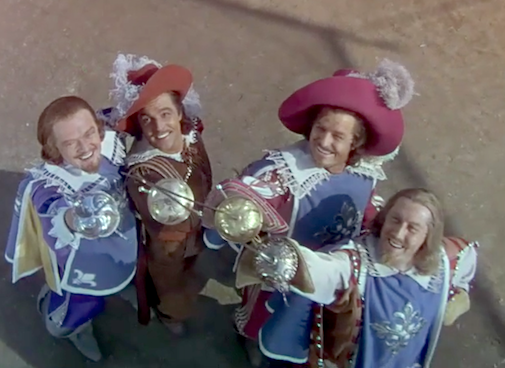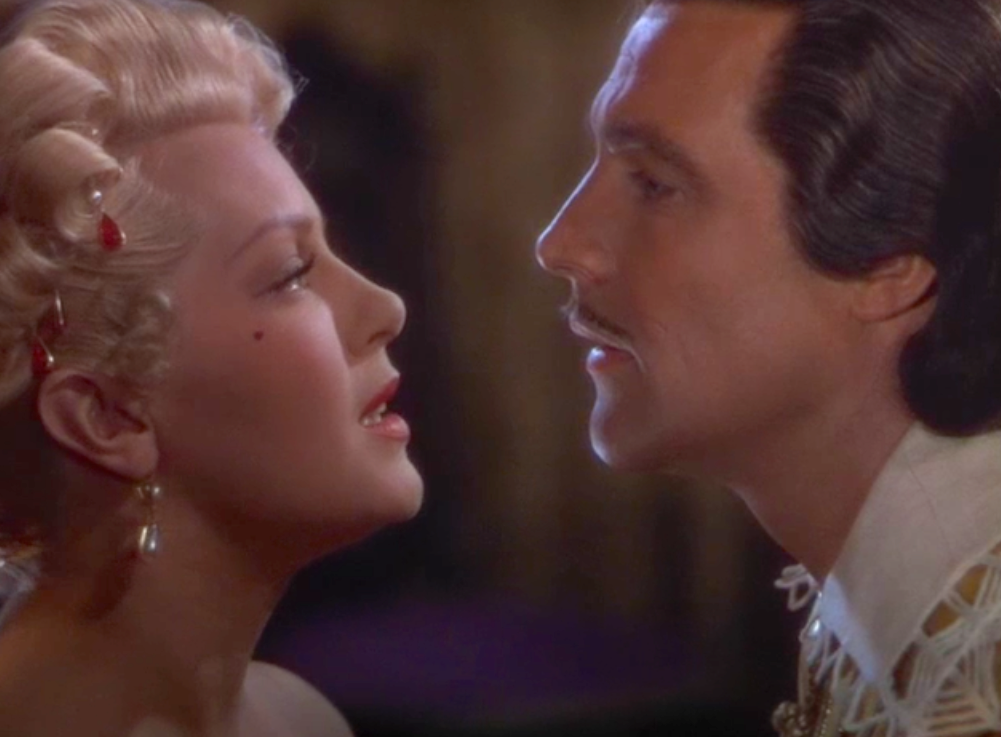The email sent will contain a link to this article, the article title, and an article excerpt (if available). For security reasons, your IP address will also be included in the sent email.
by Nathaniel R

After looking at three popular musicals Anchors Aweigh (1945), Kiss Me Kate (1953), and Bye Bye Birdie (1963), in our mini George Sidney Centennial celebration, we're closing up with his other primary mode: the adventure flick. Curiously those films also feel like musicals even when they aren't. Case in point is The Three Musketeers (1948) and the subliminal feeling that at any moment a song and dance number might break out. That's not only because glorious Gene Kelly is the star. This feeling radiates outward from the ebullient movement of all of the swordsmen. It's also firmly embedded in the swooning romantic overtures that happen instantaneously between Gene Kelly and each of the women. Lana Turner is the devilish Lady de Winter and June Allyson is the saintly Constance and, in case you're wondering, no one will ever accuse this movie of subtlety or evolved gender politics. Still the love scenes are memorable for their queer duet of completely earnest and purposefully comic registers.

While The Three Musketeers, MGM's second biggest hit of the entire decade, never abandons its swashbuckler adventure commitments to make room for the theoretical song and dance number, it does make quite a few overtures to other identities. This treatment of the Alexander Dumas story is also a romantic comedy, a slapstick farce, and even a stylized melodrama...



 Return to Article
Return to Article